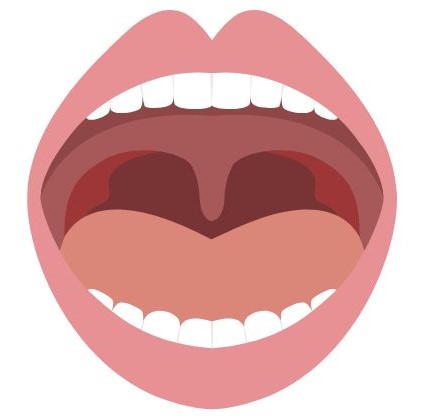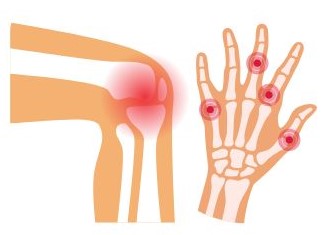Mouth health is a fundamental aspect of overall wellness that often goes unnoticed until problems arise. Our mouths serve multiple essential functions, including the processes of eating, speaking, and even breathing. They are the entry points for the nutrients we consume and play a critical role in digestion and nutrition. Moreover, the health of our mouth can significantly impact our self-esteem and social interactions, affecting everything from our ability to enjoy meals to our confidence in communication.
However, oral health is more than just having a bright smile. It’s closely linked to various systemic health issues, with research suggesting that poor oral hygiene can contribute to conditions like heart disease, diabetes, and respiratory infections. The bacteria and inflammation associated with gum disease can enter the bloodstream, leading to complications in other parts of the body. This interconnectedness underscores the importance of maintaining good mouth health not just for the sake of teeth and gums, but for overall health and vitality.
Despite the clear importance of oral care, many people underestimate its significance or neglect it altogether. Common issues like cavities, gum disease, and bad breath can lead to discomfort and more serious health concerns if not addressed. Preventive measures and regular check-ups are crucial for identifying and managing potential problems before they escalate.
In this comprehensive guide, we will delve into the importance of mouth health, explore common dental issues, outline effective preventive measures, and provide practical tips for maintaining a healthy mouth. By prioritizing oral hygiene and understanding its role in our overall health, we can all take meaningful steps toward better well-being and quality of life.
Importance of Mouth Health
1. Impact on Overall Health
Oral health is intricately connected to overall health. Poor mouth hygiene can lead to infections and diseases that can affect other parts of the body. For example, gum disease (periodontitis) has been linked to conditions such as heart disease, diabetes, and respiratory issues. Maintaining a healthy mouth can reduce the risk of these systemic health problems.
2. Quality of Life
Good oral health enhances quality of life. Healthy teeth and gums allow individuals to eat comfortably, speak clearly, and maintain confidence in social interactions. Dental issues can lead to pain, discomfort, and even embarrassment, affecting both personal and professional relationships.
3. Prevention of Dental Issues
Regular oral care can prevent common dental problems such as cavities, gum disease, and bad breath. Early detection of dental issues through regular check-ups can save individuals from more extensive treatments and associated costs.
4. Diet and Nutrition
The health of your mouth affects your ability to eat a balanced diet. Dental pain or loss of teeth can limit food choices, leading to poor nutrition. Maintaining good mouth health ensures that you can enjoy a variety of foods necessary for overall health.
Common Dental Issues
Understanding common dental issues is crucial for effective prevention and treatment. Here’s a more detailed look at some of the most prevalent problems that can affect mouth health:
1. Cavities (Tooth Decay)
- Causes: Cavities are primarily caused by the buildup of plaque, a sticky film of bacteria that forms on teeth. When sugars from food and beverages interact with these bacteria, acids are produced that can erode tooth enamel, leading to decay.
- Symptoms: Early symptoms may include tooth sensitivity, pain when chewing, and visible holes or pits in the teeth. In advanced cases, it can lead to severe pain and infection.
- Treatment: Treatment options range from fillings for minor cavities to crowns or root canals for more severe decay. Regular dental check-ups can help detect cavities early.
2. Gum Disease (Periodontal Disease)
- Stages:
- Gingivitis: The earliest stage, characterized by inflammation of the gums, redness, swelling, and bleeding during brushing or flossing. Gingivitis is usually reversible with improved oral hygiene.
- Periodontitis: If gingivitis is left untreated, it can progress to periodontitis, where the inflammation extends deeper into the supporting structures of the teeth. This stage can result in gum recession, pockets forming between teeth and gums, and eventual tooth loss.
- Symptoms: Signs include persistent bad breath, gum bleeding, receding gums, and loose teeth.
- Treatment: Treatment may involve professional cleanings, scaling and root planing, and in advanced cases, surgical procedures to restore gum health.
3. Bad Breath (Halitosis)
- Causes: Bad breath can stem from various factors, including poor oral hygiene, gum disease, dry mouth, certain foods (like garlic and onions), and medical conditions (such as sinus infections or diabetes).
- Symptoms: Persistent foul odor from the mouth, often noted by others.
- Treatment: Improving oral hygiene, regular dental cleanings, staying hydrated, and addressing underlying health issues can help manage bad breath.
4. Tooth Sensitivity
- Causes: Tooth sensitivity can result from enamel erosion, gum recession, or conditions like cavities and cracked teeth. It may also occur due to certain dental procedures or teeth whitening treatments.
- Symptoms: Sharp pain or discomfort when consuming hot, cold, sweet, or acidic foods and beverages.
- Treatment: Treatment options include desensitizing toothpaste, fluoride treatments, dental sealants, or, in some cases, more extensive dental procedures.
5. Oral Cancer
- Risk Factors: Oral cancer risk factors include tobacco use, heavy alcohol consumption, HPV infection, and prolonged sun exposure (affecting the lips).
- Symptoms: Early signs can include persistent sores in the mouth, lumps or growths, difficulty swallowing, and changes in voice. White or red patches on the gums, tongue, or lining of the mouth are also concerning signs.
- Treatment: Early detection is crucial. Treatment may involve surgery, radiation therapy, chemotherapy, or a combination of these approaches, depending on the stage of cancer.
6. Tooth Erosion
- Causes: Tooth erosion occurs when acids wear away the enamel, which can be caused by dietary acids (from citrus fruits, sodas, etc.), acid reflux, or excessive brushing with abrasive toothpaste.
- Symptoms: Symptoms include sensitivity, discoloration, and visible indentations on teeth.
- Treatment: Treatment may involve dietary changes, fluoride treatments, or restorative procedures like crowns or veneers for severely eroded teeth.
7. Bruxism (Teeth Grinding)
- Causes: Often linked to stress, anxiety, or misaligned teeth, bruxism can occur during the day or while sleeping.
- Symptoms: Symptoms include jaw pain, headaches, tooth wear, and increased tooth sensitivity.
- Treatment: Treatment options include stress management techniques, dental guards to protect teeth during sleep, and orthodontic treatment for misalignment issues.
8. Wisdom Teeth Issues
- Causes: Wisdom teeth, or third molars, often become impacted due to lack of space in the mouth, leading to pain, infection, and damage to adjacent teeth.
- Symptoms: Symptoms include pain in the back of the mouth, swelling, difficulty opening the mouth, and bad breath.
- Treatment: Surgical extraction is often necessary for impacted wisdom teeth to prevent complications.
Being aware of these common dental issues can empower individuals to take proactive steps in their oral health care. Regular dental visits, effective oral hygiene practices, and prompt attention to any signs of dental problems are key strategies for preventing complications and maintaining a healthy mouth. By addressing these issues early, you can help ensure a lifetime of good oral health.
Preventive Measures for Mouth Health
1. Regular Dental Check-Ups
- Frequency: Schedule dental visits at least twice a year for cleanings and examinations. Your dentist can identify potential issues early and provide professional cleaning to remove plaque and tartar.
2. Proper Brushing Technique
- Frequency: Brush your teeth at least twice a day.
- Technique: Use a fluoride toothpaste and a soft-bristled toothbrush. Brush for at least two minutes, ensuring you cover all surfaces of your teeth, including the fronts, backs, and chewing surfaces.
3. Flossing
- Daily Habit: Floss daily to remove food particles and plaque between teeth where a toothbrush cannot reach. Proper flossing helps prevent gum disease and cavities.
4. Healthy Diet
- Limit Sugary Foods: Reduce the intake of sugary snacks and drinks, which can contribute to cavities.
- Nutritious Choices: Focus on a balanced diet rich in fruits, vegetables, whole grains, lean proteins, and dairy products to support oral health.
5. Stay Hydrated
- Water Intake: Drink plenty of water to help wash away food particles and bacteria. Water also helps maintain saliva flow, which is crucial for neutralizing acids produced by bacteria in the mouth.
6. Avoid Tobacco Products
- Health Risks: Tobacco use is a major risk factor for gum disease and oral cancer. Quitting smoking or chewing tobacco can significantly improve oral health.
7. Limit Alcohol Consumption
- Effects on Mouth Health: Excessive alcohol consumption can lead to dry mouth and increase the risk of oral cancer. Moderation is key to maintaining good oral health.
8. Use Mouthwash
- Antimicrobial Rinse: Consider using an antimicrobial mouthwash to help reduce plaque and prevent gum disease. Choose a product that contains fluoride for added protection against cavities.
Tips for Maintaining a Healthy Mouth
Maintaining a healthy mouth involves a combination of good hygiene practices, dietary choices, and regular dental care. Here are detailed tips to help ensure your oral health remains in top condition:
1. Regular Dental Check-Ups
- Frequency: Aim for dental check-ups every six months. However, if you have specific dental issues or a higher risk of oral diseases, your dentist may recommend more frequent visits.
- Professional Cleaning: During check-ups, dental professionals can remove plaque and tartar buildup that regular brushing and flossing might miss. They can also conduct oral cancer screenings and check for early signs of gum disease.
2. Proper Brushing Technique
- Choose the Right Toothbrush: Use a soft-bristled toothbrush that fits comfortably in your mouth. Electric toothbrushes can also be effective for plaque removal.
- Toothpaste: Use fluoride toothpaste to help strengthen tooth enamel and prevent cavities.
- Brushing Technique:
- Position the toothbrush at a 45-degree angle to your gums.
- Use gentle, circular motions to clean the front and back of your teeth and the chewing surfaces.
- Brush for at least two minutes, ensuring you spend time on all areas of your mouth, including the tongue.
3. Flossing
- Daily Habit: Flossing is crucial for removing plaque and food particles stuck between teeth and below the gumline where a toothbrush cannot reach.
- Flossing Technique:
- Use about 18 inches of floss, winding most of it around one finger and the rest around the opposite finger.
- Gently slide the floss between your teeth and curve it around each tooth in a C-shape, moving it up and down along the sides of each tooth.
4. Healthy Diet
- Limit Sugary Foods and Drinks: Reduce the consumption of candies, sodas, and other sugary snacks, which can contribute to tooth decay.
- Choose Nutrient-Rich Foods: Incorporate plenty of fruits, vegetables, whole grains, lean proteins, and dairy products into your diet. Foods rich in calcium and vitamin D are particularly beneficial for strong teeth.
- Snacking Wisely: Opt for healthy snacks like nuts, yogurt, and fresh fruit. If you do indulge in sweets, try to do so during meals to minimize their impact on your teeth.
5. Stay Hydrated
- Drink Plenty of Water: Staying hydrated is essential for saliva production, which helps neutralize acids and wash away food particles and bacteria.
- Opt for Water Over Sugary Beverages: Choose water or unsweetened beverages over soda and other sugary drinks to protect your teeth.
6. Avoid Tobacco Products
- Health Risks: Tobacco use significantly increases the risk of gum disease, tooth loss, and oral cancer. Quitting smoking or using smokeless tobacco can greatly improve your oral health and overall well-being.
- Support Resources: Seek support through counseling, medication, or programs designed to help you quit.
7. Limit Alcohol Consumption
- Impact on Oral Health: Excessive alcohol can lead to dry mouth, increasing the risk of tooth decay and gum disease. Moderation is key to maintaining a healthy mouth.
- Opt for Low-Alcohol Alternatives: If you choose to drink, consider low-alcohol options and ensure to drink water in between alcoholic beverages.
8. Use Mouthwash
- Antimicrobial Rinse: Incorporate an antimicrobial mouthwash into your oral hygiene routine. This can help reduce plaque, fight gum disease, and freshen your breath.
- Fluoride Mouthwash: Consider using a fluoride mouthwash for added protection against cavities, especially if you’re at a higher risk.
9. Protect Your Teeth
- Mouthguards: If you participate in contact sports or grind your teeth at night, consider wearing a custom mouthguard to protect against injury and damage.
- Avoid Hard Foods: Be cautious with hard candies, ice, and other hard foods that can chip or crack teeth.
10. Be Mindful of Teeth Grinding (Bruxism)
- Recognize Symptoms: Be aware of signs like jaw pain, headaches, or worn-down teeth. If you suspect bruxism, consult your dentist for advice and treatment options.
- Stress Management: Practice relaxation techniques, such as yoga or meditation, to reduce stress that may contribute to teeth grinding.
11. Educate Yourself
- Stay Informed: Learn about proper oral hygiene practices and the importance of regular dental care. Understanding how various factors affect mouth health can empower you to make better choices.
- Involve Family: Share knowledge about oral health with family members, especially children, to instill good habits early on.
12. Practice Good Oral Hygiene from a Young Age
- Start Early: Teach children the importance of brushing and flossing from an early age. Make dental hygiene a fun and rewarding part of their daily routine.
- Regular Dental Visits: Ensure that children see a dentist regularly to monitor their dental development and instill a positive attitude toward oral care.
By following these tips and establishing a consistent oral care routine, you can significantly reduce the risk of dental issues and enjoy a lifetime of good oral health. Remember, proactive care and regular check-ups are key components in achieving and maintaining a healthy mouth.

Maintaining good mouth health is essential not only for a beautiful smile but also for overall health and quality of life. By following preventive measures, practicing good oral hygiene, and seeking regular dental care, you can significantly reduce the risk of dental issues and promote a healthier mouth. Remember, your mouth is a reflection of your overall health—taking care of it will benefit both your oral and systemic health for years to come.







